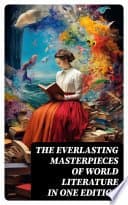Unlocking Reality: Non-Fiction Authors Who Tell True Stories Like Fiction
Dive into the fascinating world of non-fiction with authors who masterfully blend storytelling and reality. Discover how Erik Larson, Jon Krakauer, and others craft captivating narratives that will inspire and enlighten you, proving that true stories can

Books Featured in This Article
Explore the books discussed



Unearthing True Stories: Non-Fiction Authors with Captivating Writing Styles
For readers who crave the thrill of reality enriched with storytelling flair, delving into non-fiction doesn't have to mean wading through dry texts. Some authors possess the unique ability to transform complex topics into engaging, compelling narratives. If you're looking to explore true stories with all the excitement of fiction, this curated list introduces you to writers who excel at making the real world come alive on the page.
Erik Larson: Master of Historical Narrative
Known for his meticulously researched and vividly composed works, Erik Larson has redefined historical non-fiction with his penchant for weaving intricate stories. In "The Devil in the White City," Larson explores the simultaneous rise of the World's Columbian Exposition and the chilling crimes of H.H. Holmes in late 19th-century Chicago.
“Nothing was easier to find than solitude.” — Erik Larson, in reference to the vast, uncompleted fairgrounds.
Whether it's the chaos of "Thunderstruck" or the maritime intrigue of "Dead Wake," Larson's ability to switch between concurrent narratives keeps readers hooked until the very last page.
Jon Krakauer: Adventure in the Ordinary
Venturing into psychological and physical landscapes alike, Jon Krakauer captures human endurance and error with unmatched depth. His acclaimed book "Into the Wild" tells the tragic tale of Christopher McCandless, a man who ventured into the Alaskan wilderness with fatal resolve. Krakauer's seamless blend of reportage and narrative makes the book a perennial favorite for those seeking reflective adventure.
In Krakauer's exploration of ambition and isolation, readers discover the delicate balance between the call of the wild and the voice of reason.
Equally thrilling is "Into Thin Air," an account of the disastrous 1996 Everest expedition, written with honesty and a deep understanding of human motivation.
Mary Roach: Science with a Wink
If science intimidates you, Mary Roach might just change your mind. Her books tackle unusual subjects with humor and clarity. In "Stiff: The Curious Lives of Human Cadavers," Roach explores the world of the postmortem, revealing the unexpected uses of human bodies in research.
Roach's humor and keen observations make the seemingly macabre irresistibly fascinating, bringing levity to even the most somber subjects.
Don't miss "Packing for Mars," where she investigates the peculiar challenges of space travel. Roach’s ability to meld scientific detail with a comedic touch makes complex topics accessible to everyone.
Malcolm Gladwell: Illuminating Choices
Malcolm Gladwell has a knack for presenting social science in an engaging light, connecting quirky anecdotes with broader societal patterns. His bestseller "Outliers" investigates the factors contributing to success, debunking myths around innate talent.
In "The Tipping Point," he dissects how small actions can lead to major societal shifts. Gladwell’s approachable style and eye-opening insights have captivated millions, making his books essential reads for those curious about the unseen patterns shaping our world.
Susan Orlean: Celebrating the Eccentric
Celebrating eccentricity, Susan Orlean crafts narratives that explore unique cultural phenomena. In "The Orchid Thief," she delves into the world of rare flower poaching in Florida, offering an enthralling portrait of obsession and wilderness.
“The heart of it all is what makes us delight in the obscure and the beautiful.” — Susan Orlean's writing reflects a deep appreciation for human curiosity.
For a cultural deep dive, try "The Library Book," where Orlean recounts the devastating 1986 Los Angeles Public Library fire, blending history, biography, and memoir with grace and wit.
David Grann: Investigator of the Past
With a journalist's eye for detail and a novelist's flair for storytelling, David Grann unravels mysteries from history. His gripping work "Killers of the Flower Moon" recounts the Osage murders and the birth of the FBI, providing a poignant look at justice and exploitation.
Not to be overlooked is "The Lost City of Z," chronicling the ill-fated expedition of Percy Fawcett. Grann’s layered narrative invites readers to question the very nature of exploration and adventure.
Atul Gawande: Medicine and Humanity
In the realm of medical non-fiction, Atul Gawande stands out for his compassionate and insightful writing. "Being Mortal" tackles the challenges of aging and end-of-life care with sensitivity and wisdom, offering readers a heartfelt examination of human mortality.
Gawande's profound observations about the modern medical world resonate deeply, encouraging a conversation about quality of life versus mere survival.
His earlier works, like "The Checklist Manifesto," explore the complexities of surgical practice, advocating for systematic simplicity.
Conclusion: Captivating Realities
These authors, with their ability to transform factual accounts into mesmerizing narratives, offer an enticing entry point for anyone looking to explore non-fiction. Whether you're interested in history, adventure, science, or human nature, there's a captivating true story waiting for you in their books. Embrace the chance to expand your horizons and view the world through the eyes of these masterful storytellers.
Key Takeaways
Pros
- **Reading Benefits**: These authors transform complex and factual topics into engaging narratives, providing educational value with the thrill of storytelling.
- **Genre Strengths**: The blend of real-world events and creative writing offers escapism while also grounding readers in reality, making it appealing to both fiction and non-fiction fans.
- **Practical Advantages**: Many of these books are widely available in various formats, including paperbacks and audiobooks, making them accessible for different preferences.
- **Reader Experience**: The seamless intertwining of narrative and reality delivers memorable quotes and compelling stories that spark discussion and reflection.
- **Author Strengths**: These authors are praised for their meticulous research and distinctive voices, contributing significantly to the non-fiction genre with their unique storytelling.
- **Value Proposition**: Reading these works is a rewarding investment, offering deep insights into human behavior, history, and science, which enrich the reader’s understanding of the world.
Cons
- **Potential Challenges**: Some readers may find intricate narratives and detailed historical contexts challenging without prior knowledge of the topic.
- **Genre Limitations**: The focus on true stories may not appeal to readers seeking purely imaginative or fantastical elements.
- **Practical Considerations**: Certain books might be densely packed with information, requiring a high level of concentration and time commitment.
- **Reader Expectations**: Fans of fast-paced fiction might find the slower, informative pace of non-fiction unappealing or unsatisfying.
- **Content Concerns**: Themes such as crime, mortality, and human suffering may be intense or triggering for some readers.
- **Time Investment**: Extensive narratives like Larson’s or Grann’s may require a significant time dedication to fully appreciate the rich detail and context provided.
Frequently Asked Questions
About the Author

Book Junkie
Your go-to source for book reviews and recommendations.
You Might Also Like
Related Books
Related Articles

Curating Classics: The Best Editions of Timeless Literature
Discover the perfect editions of beloved classics like 'We,' 'Frankenstein,' and 'Paradise Lost' with minimal annotations and comprehensive introductions. This guide enriches your reading experience, ensuring accessibility and enjoyment for book lovers ar

Unlocking Reality: Non-Fiction Authors Who Tell True Stories Like Fiction
Dive into the fascinating world of non-fiction with authors who masterfully blend storytelling and reality. Discover how Erik Larson, Jon Krakauer, and others craft captivating narratives that will inspire and enlighten you, proving that true stories can

